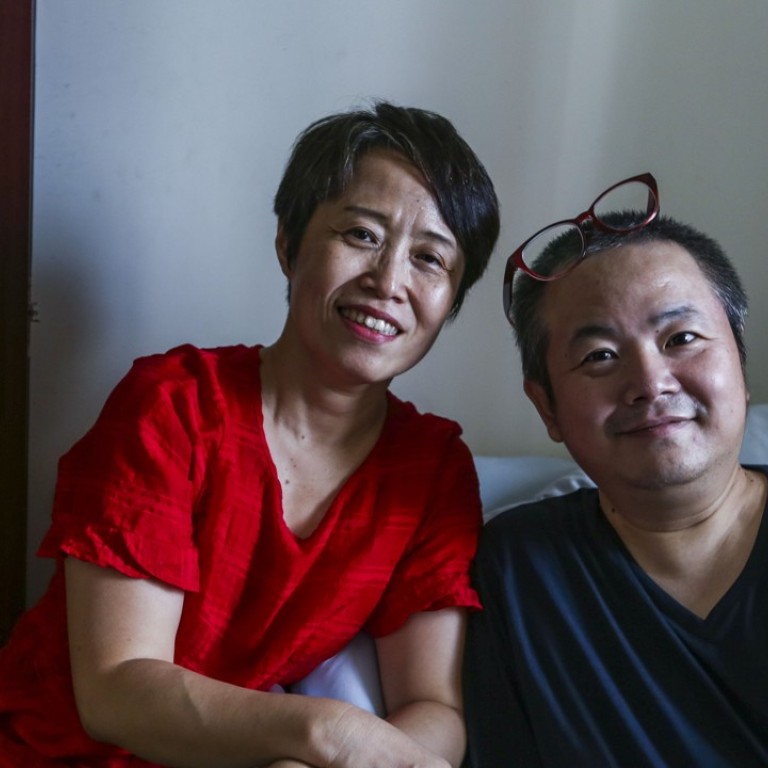
Disabled in China: why life is still a struggle in a society designed for the able-bodied
China has made great strides in its efforts to integrate those with disabilities, but the experiences of a Shenzhen couple show how much still needs to be done before they are accepted as active contributors to society
Li Hong woke up in a sweat one night this summer, breathing heavily and with his inflatable mattress – essential for preventing bedsores – slowly deflating beneath him. His breathing apparatus, which keeps air pumping through his lungs when he sleeps, had stopped working. Li pressed the emergency alarm, but it too failed. The power had been cut.
Li’s wife, Hu Ying, frantically called property management, but no one answered. She went outside in her wheelchair, hoping to find an electrician, only to discover that the lift was not functioning. The blackout was affecting their entire Shenzhen neighbourhood.
The true price of failing to help the world’s disabled
Unable to do much else, the couple closed their eyes and prayed, Li concentrating on inhaling and exhaling, and after two hours, mercifully, the electricity came back on. The breathing apparatus flickered back to life and the mattress rose, supporting his weight. It had been a close call.
Li had not been diagnosed until he was 17, in 1989. Before then, doctors at the hospital in his hometown of Xuzhou, in Jiangsu province, could not explain why he struggled with running and sports. One insisted that he was simply lazy and did not do enough exercise. It was only when Li’s father took him to a larger hospital, in Hangzhou, the capital of Zhejiang province, that they found a name for his condition. He was suffering from Becker muscular dystrophy, a rare disorder characterised by progressive muscle weakness of the legs and pelvis.
Now 46, Li has had many brushes with death. Once, he fell unconscious at home after suffering an ischemic stroke, and twice he has developed pulmonary oedema, caused by excess fluid in the lungs. After surviving a cardiogenic shock (when the heart suddenly cannot pump enough blood to meet the body’s needs) along with hyperkalemia (a dangerous level of potassium in the blood) in 2008, he was largely confined to his wheelchair. Another visit to intensive care last October left him bedridden.
This is what’s good about Shenzhen. Here I can live as a normal person. They enable the disabled to live with dignity
Li and his wife, who lost her ability to walk from acute osteomyelitis (a type of bone infection) at the age of 13, are among at least 85 million people with disabilities in China. (The China Disabled Persons’ Federation [CDPF], a quasi-government organisation, projected that figure from the 2010 census, but experts and human-rights organisations estimate 200 million to be a more realistic number.)
In 2013, after an eight-year wait, Li and Hu moved into a public-housing flat in Shenzhen, which shields them from the city’s rapidly rising rents. Their wheelchairs, Li’s special bed and the modifications required to make their home wheelchair-accessible were all subsidised by the CDPF. Public health insurance covers most of the cost of Li’s hospital stays and part of his monthly 1,000-yuan (US$146) medication fee, although certain imported drugs are not covered and for those he must pay out of his own pocket.
Hu, who is also in her 40s, retired early from her job as a social worker because of her deteriorating health and now receives a modest state pension. Li’s severe disability entitles him to 400 yuan a month.
“This is what’s good about Shenzhen,” says Hu. “Here I can live as a normal person. They enable the disabled to live with dignity.”
Hong Kong can be unfriendly for those with disabilities
This year marks a decade since the United Nations Convention on the Rights of Persons with Disabilities (CRPD) came into force. In anticipation of hosting the Olympics and Paralympics in Beijing that year, and eager to prove itself as a global power, China had been a major backer of the international treaty, ratifying it in 2008 without any reservations. Since then, the country has passed disability laws and amended existing legislation covering areas such as rehabilitation, employment, social security and barrier-free environment.
China has made especially significant strides in education for the disabled. The CDPF reported in 2006 that 43 per cent of China’s disabled population was illiterate, which was one reason why so many lived in poverty. In May last year, revisions to the country’s Regulations on the Education of Persons with Disabilities, originally passed in 1994, came into force. The revisions open up mainstream schools to students with special needs, promote the concept of integrated education and provide subsidies to students and schools.
While many schools, especially those in rural areas, still lack barrier-free facilities and teachers are often not prepared for pupils with special needs, the amendment has made it illegal for schools to turn disabled people away, which was a common occurrence in the past.
Another development is a nationwide regulation, implemented in 2015, that ensures that disabled students can take the gaokao, the national university entrance exam. Municipal authorities are now required to provide wheelchair-accessible examination venues, exam papers in Braille or bearing large-print characters, and screen-reading software, and the time allowed to complete the exam can be extended for those students who need it.
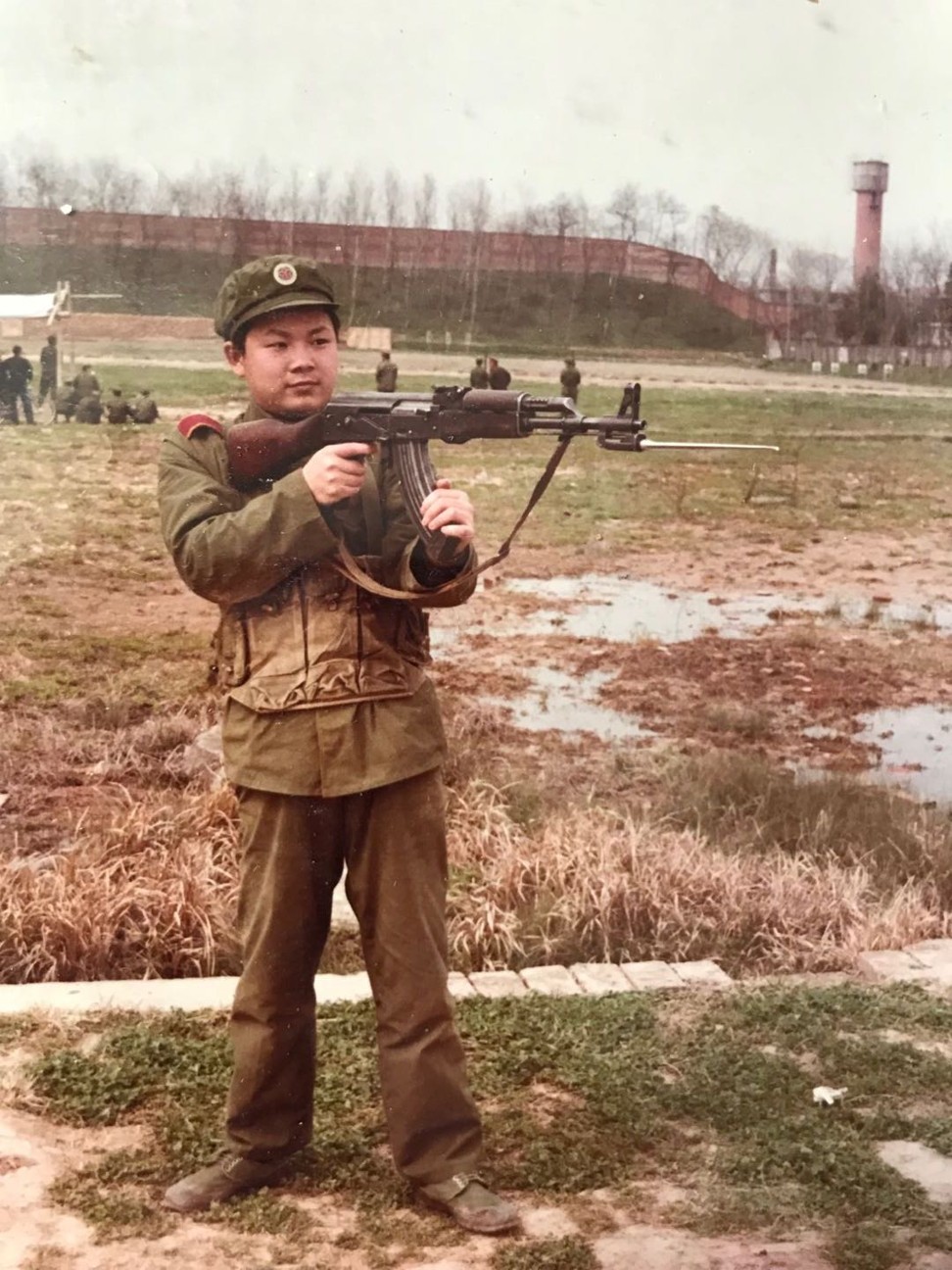
In the past, disabled students had little chance of receiving tertiary education in China. Even if they qualified, they were thought to have no prospects and hence discouraged from pursuing their studies.
When Li was diagnosed one year before taking the gaokao, his doctor suggested he “make a living by picking up a vocational skill like fixing electrical appliances”, he remembers. Li, however, aspired to greater things and he won a place at Peking University in 1990 by scoring full marks in physics and coming fifth across all subjects in his province.
“When I received the university acceptance letter to the physics programme, I saw another Stephen Hawking in the making,” says Li. But many challenges lay ahead.
There was, for instance, compulsory military training for freshmen, which Li managed to get through with the help of fellow students who literally hauled him over obstacles. Other physical barriers on campus proved tougher to overcome. As his muscle strength decreased, taking stairs became tantamount to “climbing Mount Everest”, he says. Abnormalities in his heart further threatened his health, forcing him to take a term off after his first year.
When he returned, he could no longer make it to classes held above the first floor, and so completed his degree on his own by studying in the library, albeit with less-than-satisfactory grades. Li’s dream of becoming a renowned scientist was now over, and he would settle for a prosaic job. But while graduating from a top Chinese university impressed employers, it did not, in their eyes, compensate for his disability.
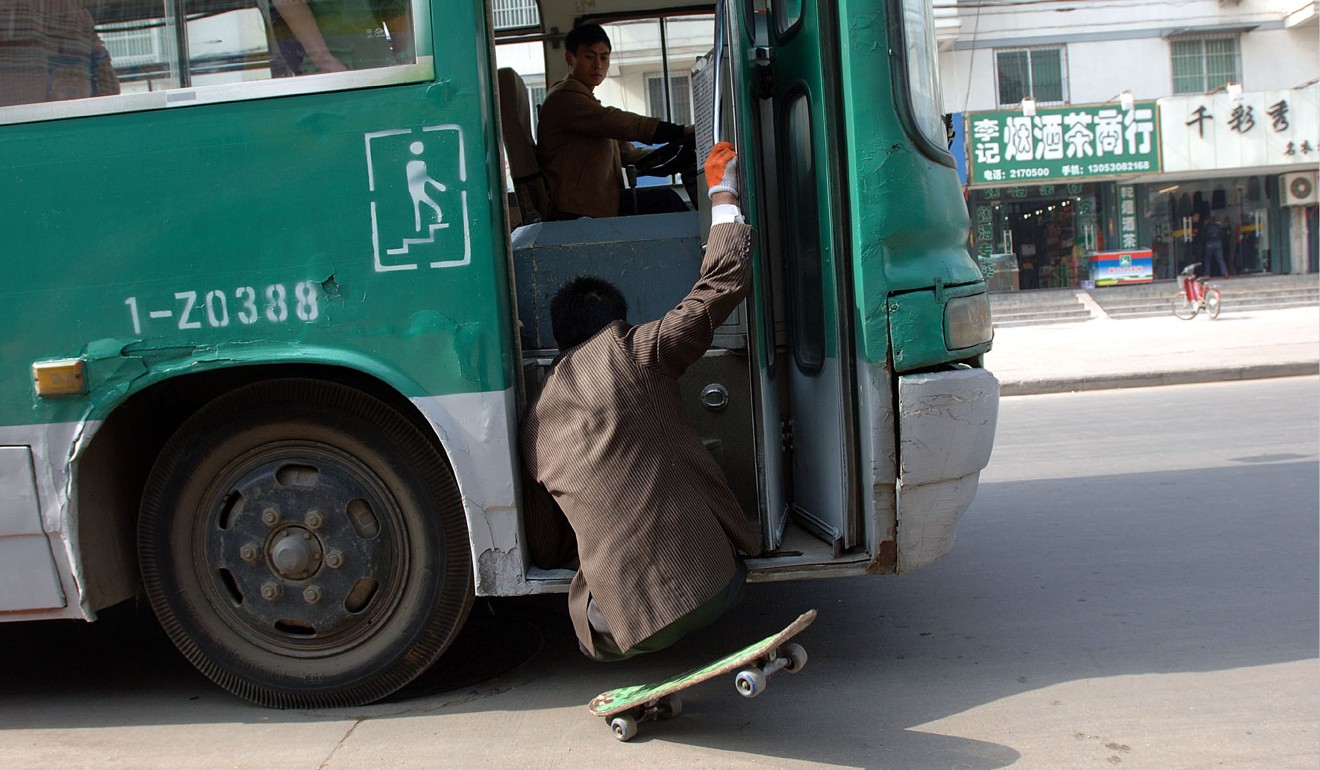
One software company in Beijing gave him a chance, which he gladly took, even though it meant spending most of his salary on taxis to work each morning, and walking for 1½ hours to get home because he could not physically get on the bus. He was also, he believes, passed over for promotions, and when the office moved to a higher floor – leaving him exhausted on arrival and needing time to recover – he was fired for “poor concentration”.
Li recalls once visiting a technology conference. When the door to the room opened, a crowd rushed in and knocked him down. Li had always imagined technology as a tool for creating a better future, but at that moment, spread-eagled on the floor, he wondered, “Would people like me ever be included in that future?”
Finding a job has become easier, though challenges remain.
The government provides tax deductions for the employment of the disabled, and has set a quota that requires they make up 1.5 per cent of a company’s labour force. Those that do not meet the quota are required to pay into the Disabled Persons’ Employment Security Fund.
Many businesses, however, especially smaller firms, are poorly equipped to integrate disabled staff, and cannot afford the facilities and technologies necessary. What’s more, decades of being shut out of mainstream schools means many disabled candidates do not meet the basic educational requirements for many positions.
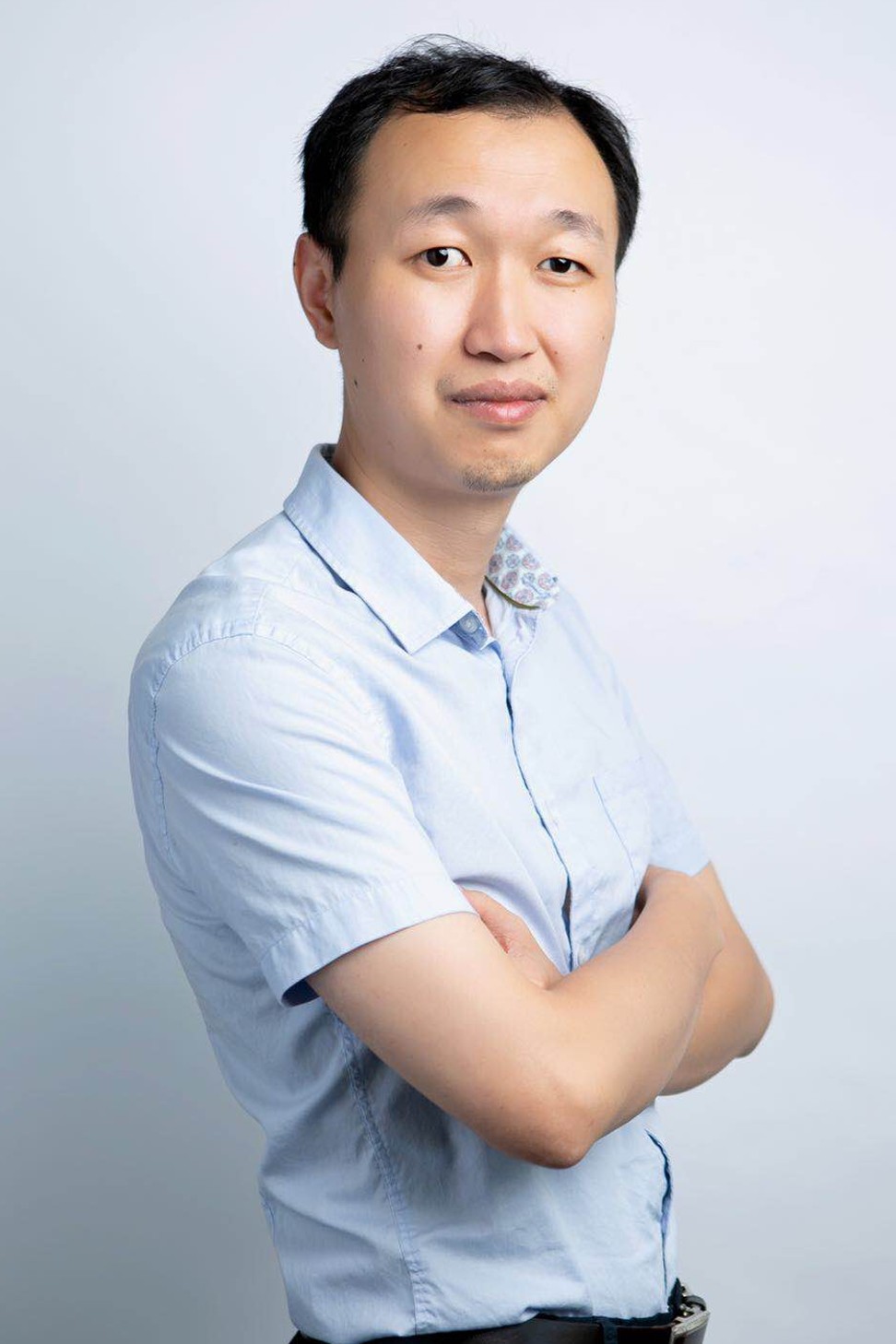
The situation has resulted in a phenomenon known as guakao, wherein companies employ disabled staff for the record but they do not have to turn up for work. Such firms save money by not spending on disabled-access facilities or paying into the fund; and the disabled earn an income for doing nothing. Such behaviour not only reinforces the narrative that the disabled are incapable of work but also discourages companies from building more inclusive workplaces.
What’s more, with the fund as a source of income for local governments, promoting employment of the disabled is not in their interest. And middlemen exploit the disabled by charging fees of up to 20,000 yuan for finding them guakao positions, even though disabled staff are likely to be paid the lowest salaries, of no more than 2,000 yuan a month.
“It is not entirely fair to place the responsibility solely on employers,” says Fu Gaoshan, a visually impaired partner at disabled persons’ organisation One Plus One. “The biggest problem is that [the country] does not provide proper education. Without that, the disabled are not adapted to mainstream society, and vice versa.”
Until education for the disabled is successfully implemented in schools, those looking for jobs with career prospects will continue to face discrimination. In a WeChat group run by disabled young adults in China, job seekers write of a common dilemma: disclose your condition in your application and never hear from the firm, or hide your condition and be accused of dishonesty during the interview. Either way, applications end up being rejected.
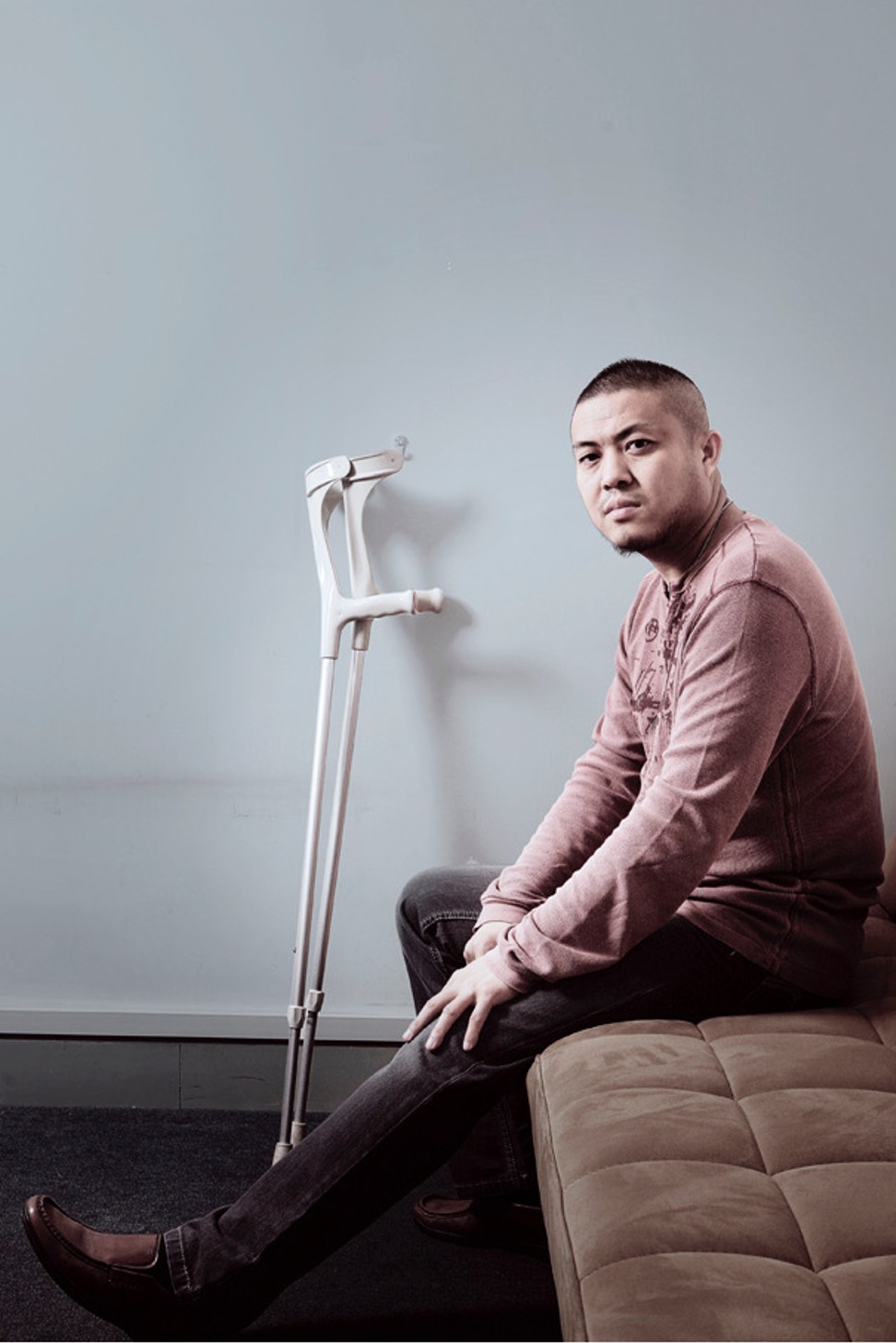
For Hu and Li, every trip to the hospital is daunting. Public transport is largely inaccessible to them, and while barrier-free facilities are being established, the couple regularly come across ramps too steep for wheelchairs, lifts frequently under maintenance and bus drivers who refuse to lower the ramp.
Hu was delighted in 2013 when a fleet of 100 wheelchair-accessible taxis took to Shenzhen’s streets. Most, however, disappeared within six months because drivers found that fuel use was higher and not sufficiently covered by the government subsidies.
“Disabled groups are once again trying to raise the issue,” says Hu, “but you don’t know how many years it will take before your voice is heard.”
Occasionally, when the interests of the general citizenry and the disabled are in opposition, those of the minority will be dismissed, says Fu, who gives the example of an audio system – useful to the visually impaired – that was added to traffic lights in Hangzhou ahead of the National Games for the Disabled in 2011. Residents complained of the noise and the system was soon removed, Fu says.
It’s normal for the disabled to encounter barriers in a society designed for the able-bodied. But rather than viewing the barriers as a problem, [society treats] the disabled as the problem to be fixed. Go away, and the problem is solved
Xie Yan, who co-founded One Plus One in 2006, after surviving bone cancer, believes laws are useless if they are not implemented, and monitoring cannot be left to the authorities – the disabled must defend their rights. He sees news headlines about wheelchair users being denied access to flights, and blind customers being rejected by banks, as positive signs of change. Those people are, after all, making the news.
“There is a growing awareness among the disabled community,” Xie says. “We are using our actions to reveal and correct unfair treatment.”
However, the civil rights concept of “nothing about us without us” has not always been easy for disabled people to demand in China.
“It’s normal for the disabled to encounter barriers in a society designed for the able-bodied,” says Li. “But rather than viewing the barriers as a problem, [society treats] the disabled as the problem to be fixed. Go away, and the problem is solved.”
Speaking out can also come with a heavy price.
“Many things here can’t be exposed,” says Hu, choosing her words carefully. “It is difficult for a minority to be vocal, and our voices are suppressed. If you criticise, you could lose your benefits.”
[Disabled-persons’ organisations] focus only on providing services, but that is only a temporary solution. We need to advocate for systematic and legislative changes to ensure our rights
The medical and charity models used to understand disability (the former suggesting care or treatment to cure a disease or injury, the latter that the disabled are passive and to be pitied) are so entrenched in Chinese society that NGOs such as One Plus One are sidelined and “viewed as a troublemaker”, says Xie. Most organisations see the disabled only as recipients of help, rather than recognising them as equal members of society who can take on active roles.
“They focus only on providing services, but that is only a temporary solution,” says Xie. “We need to advocate for systematic and legislative changes to ensure our rights.”
To that end, in 2009, he started an independent think tank called China Disability Observe (CDO), to support their advocacy work with research.
“We cannot participate in the lawmaking process, but our reports can be used for reference in [the lawmakers’] research,” says Xie.
CDO’s annual reports not only document the country’s development and its successes but also highlight where it falls short. While state-run media celebrated the completion of 2,294 disabled resource centres across the country by the end of 2016, for example, CDO pointed out that municipal governments and the CDPF often built facilities that were larger than necessary, too far from the city centre and unsustainably expensive.
Fears for Chinese NGOs as activists arrested
Given authorities’ tightening control over NGOs and the internet, even those exchanging information online need to be cautious about what they say. The previously mentioned WeChat group strictly forbids the discussion of politics.
“If you assemble people to discuss an issue and it is deemed sensitive, your group will be made to disappear,” the group’s administrator says. “Once that happens, it’s very hard to gather everyone again.”
China’s disabled face numerous obstacles – physical, social and systemic – but, for many, according to Fu, the primary source of their difficulties lies closer to home.
“All those external barriers can be overcome,” he says. “What brings most pain is not the lack of opportunities, but their identity as a disabled person. The first step is to truly accept themselves and their own bodies, and to not see [their disability] as something bad or wrong.”
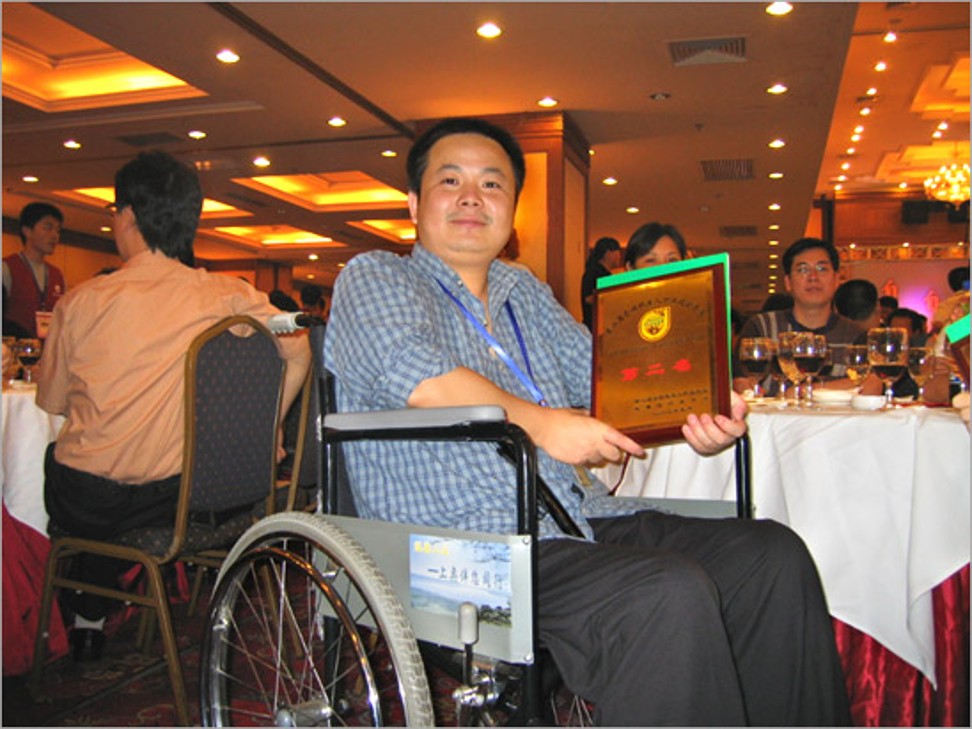
The passing of time and his Christian faith have allowed Li to take that step. He strove to prove his worth for many years, joining a Shenzhen tech start-up – established by disabled people – in 2001, developing software and building websites. Though they could only offer him a modest salary, they also provided a bed. And because the team lived and worked together, there was no transportation to negotiate.
Li competed in a local vocational skills competition and won the opportunity to represent China in computer programming at the 6th International Abilympics, held in India, in 2003.
Despite warnings from his doctor, Li toiled away at the expense of his health. Finally, on New Year’s Eve, 2005, he suffered acute heart failure and collapsed.
“Do you still want to work or do you want to live?” he remembers his doctor asking.
Unable to put him on antidepressants because of his weak cardiac muscles, his doctor took his wife aside and told her to keep an eye on a despairing Li. It was during this period that he finally learnt to accept himself, and his condition.
“God’s creation is good,” says Li. “He didn’t make any mistakes when He made me.”
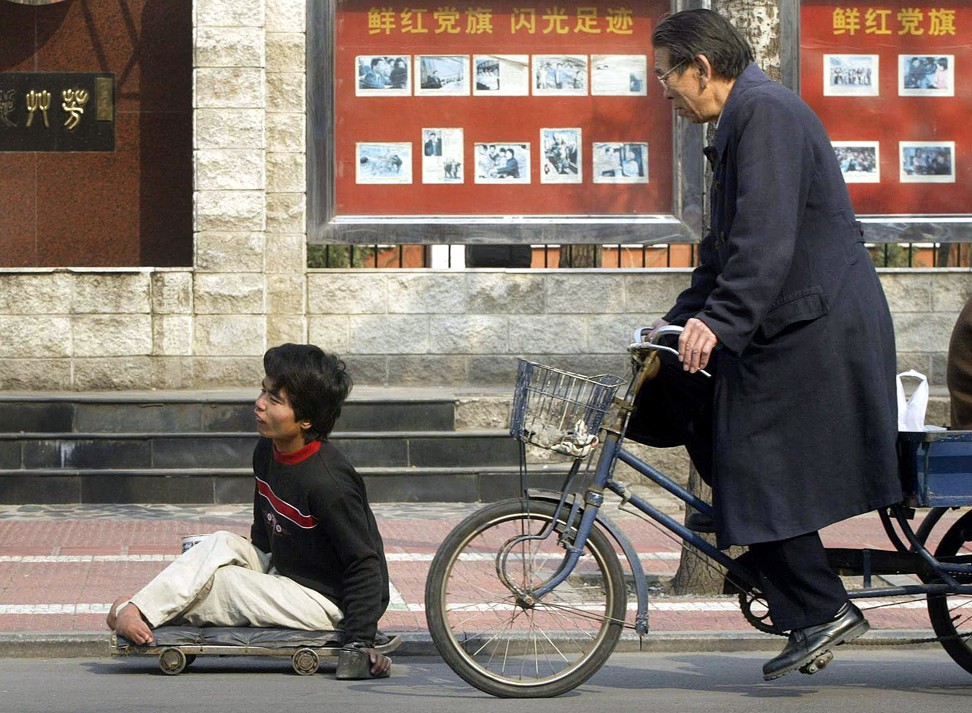
Today, Li continues to gradually lose strength in his muscles, but he is positive and in good spirits. When, earlier this year, he had to start using his breathing apparatus at night, he took a selfie – looking something like the villainous Bane in the 2012 Batman flick The Dark Knight Rises – and used it as his profile picture on social media. He blogs, offers advice to other disabled people and posts short clips of his daily life, including his exercise routine.
Not everyone is as optimistic, however, and bleak news surfaces periodically, reminding the disabled that discrimination runs deep in China. In June, in Nanjing, the capital of Jiangsu, a nine-year-old girl with cerebral palsy was pushed into a river – with bricks placed in her backpack – and left to die by her father and grandfather. According to the National Health and Family Planning Commission, close to 10,000 children are abandoned in China each year, mostly because of their disabilities.
Even after so many years, Li’s mother has not come to terms with his illness (although his parents, who are in their 70s, have moved to Shenzhen to help take care of him) and she still cries whenever it is mentioned. They once had a big argument because Li insisted on going to church with his stoma bag and she felt embarrassed.
What perhaps hurts Li the most, however, is her disapproval of his wife.
We used to live like fighters, confronting intangible barriers and caring about how others view us [...] After a long time, you realise you’re just pretending to be strong. So now, I don’t care. It doesn’t matter to me any more
Li and Hu met in 2003, when she reached out to his company, seeking technical help for her website. He read her blog and felt he had found a soul mate. In his first email to her, he wrote, “I don’t know why, but I feel like you’re the one I’ve been waiting for,” and she flew from Chongqing to meet him in Shenzhen.
The couple tied the knot in 2005, but without the blessing of some friends and family members. “Why would you marry someone who cannot take care of you? You’ve picked the wrong person,” a friend told Hu.
Hu does not regret her decision, but sometimes wonders if she has put an extra burden on Li and his family.
“Western society values equality, but hierarchy is the norm in Chinese culture. What you look like defines which class you belong to. You cannot rebel,” says Hu, resignedly, having fought an uphill battle for so many years. “We used to live like fighters, confronting intangible barriers and caring about how others view us. Whether at work or at school, you have to deal with rejection and it hurts. After a long time, you realise you’re just pretending to be strong. So now, I don’t care. It doesn’t matter to me any more.”
Education can curb prejudice against disabled in Hong Kong
Her years of overwork have resulted in ankylosing spondylitis (a type of arthritis that affects the spine and, in some cases, vision), and Hu has curbed its effect – iridocycliti, or inflammation of the iris, in the left eye – with eye drops. But over time, she may lose her sight. The medication her doctors suggest is 2,000 yuan per injection and not covered by insurance. Hu has turned it down, knowing that money spent on her own treatment means less for Li.
As his parents age and Li’s health worsens, the couple will have to hire a carer, which will cost up to 8,000 yuan a month – an amount they cannot afford.
“Those,” sighs Hu, “are worries for another day.”

